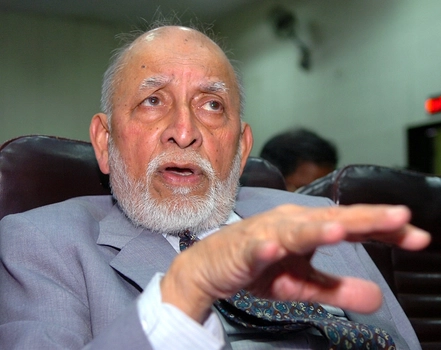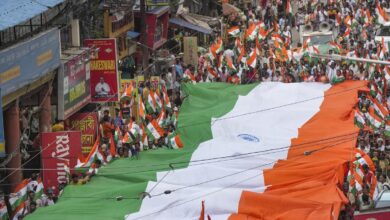MR Srinivasan, Architect Of Civil Nuclear Energy Program, Dies At 95
Dr MR Srinivasan had collaborated with Dr Homi Bhabha in the construction of Apsara, India's first nuclear research reactor, which achieved criticality in August 1956.

Chennai:
Dr MR Srinivasan, renowned nuclear scientist and ex-Chairman of Atomic Energy Commission, died in Tamil Nadu’s Udhagamandalam on Tuesday. He was 95.
One of the prime architects of India’s civilian nuclear energy program, Dr Srinivasan spent more than half a century in the Department of Atomic Energy (DAE), with his service beginning in September 1955.
He assisted Dr Homi Bhabha closely in building Apsara, India’s inaugural nuclear research reactor, which went critical in August 1956.
In 1959, he was designated as Principal Project Engineer for India‘s first atomic power station. His work further gained prominence in 1967 when he became the Chief Project Engineer of the Madras Atomic Power Station, paving the way for India’s indigenous nuclear power infrastructure.
He was appointed Director of the DAE’s Power Projects Engineering Division in 1974 and, ten years later, Chairman of the Nuclear Power Board.
During his tenure, the nation experienced the emergence of a spurt in nuclear infrastructure with Srinivasan directing major power plant planning, construction, and commissioning all over India.
He was made Chairman of the Atomic Energy Commission and Secretary of Department of Atomic Energy in 1987. He was also the founder Chairman of the Nuclear Power Corporation of India Limited (NPCIL) in the same year.
Under his stewardship, there was unprecedented growth: 18 nuclear power plants were brought into being — seven were put on stream, seven were under construction, and four were in the pipeline.
For his outstanding contributions to the discipline of nuclear science and engineering, Dr Srinivasan received Padma Vibhushan, India’s second-highest civilian award.
“His vision for excellence, technical acumen, and lifelong service to the country will inspire generations to come,” said his daughter, Sharada Srinivasan, in a family statement.
Dr Srinivasan’s passing ends an era of India’s science and technology history. He left behind a lasting legacy that fuelled the nation’s progress and energy security.






